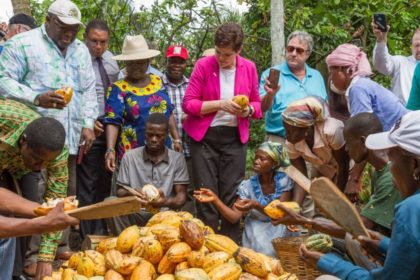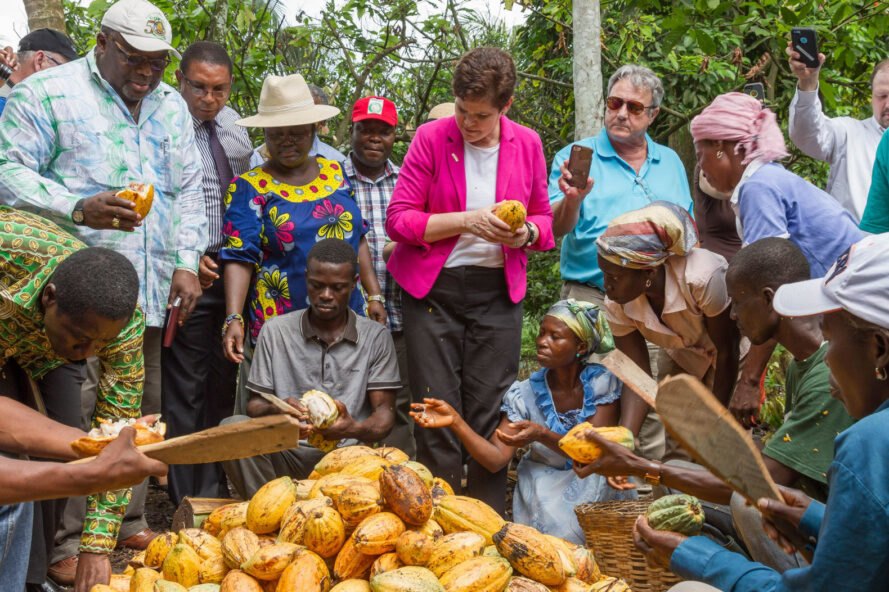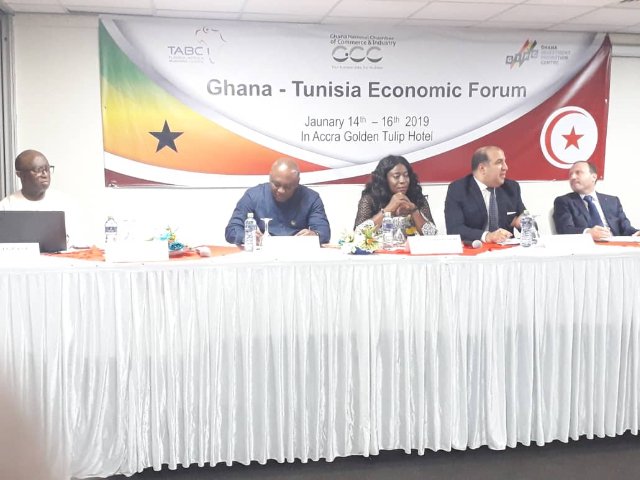 In Ghana, researchers are testing a system that will turn cocoa into biofuels to benefit African farming communities currently with little or no access to grid power.
In Ghana, researchers are testing a system that will turn cocoa into biofuels to benefit African farming communities currently with little or no access to grid power.
The project funded by the University of Nottingham in the United Kingdom will be tested in Ghana, one of the world’s largest producers of cocoa.
The new green technology generates electricity from discarded cocoa pod husks. The project aims to spawn an entirely new biofuel industry that would also improve socio-economic stability for cocoa producers in rural Ghana.
According to Jo Darkwa, Professor of Energy Storage Technologies in the Faculty of Engineering, feasibility studies indicate that cocoa pod husks could be converted into valuable biofuels; an important energy supply for rural areas that have only 15 per cent electricity coverage at present.
If successful, this new bio-energy infrastructure would support the Ghanaian government’s aim for universal access to electricity by 2030, Darkwa said.
Currently, 80 percent of households in Ghana use wood as their main source of fuel for cooking and heating water.
This practice not only leads to widespread deforestation in order to harvest wood, but indoor air pollution from wooden stoves is one of the top four leading risk factors for death worldwide.



